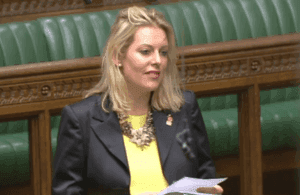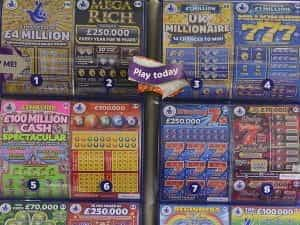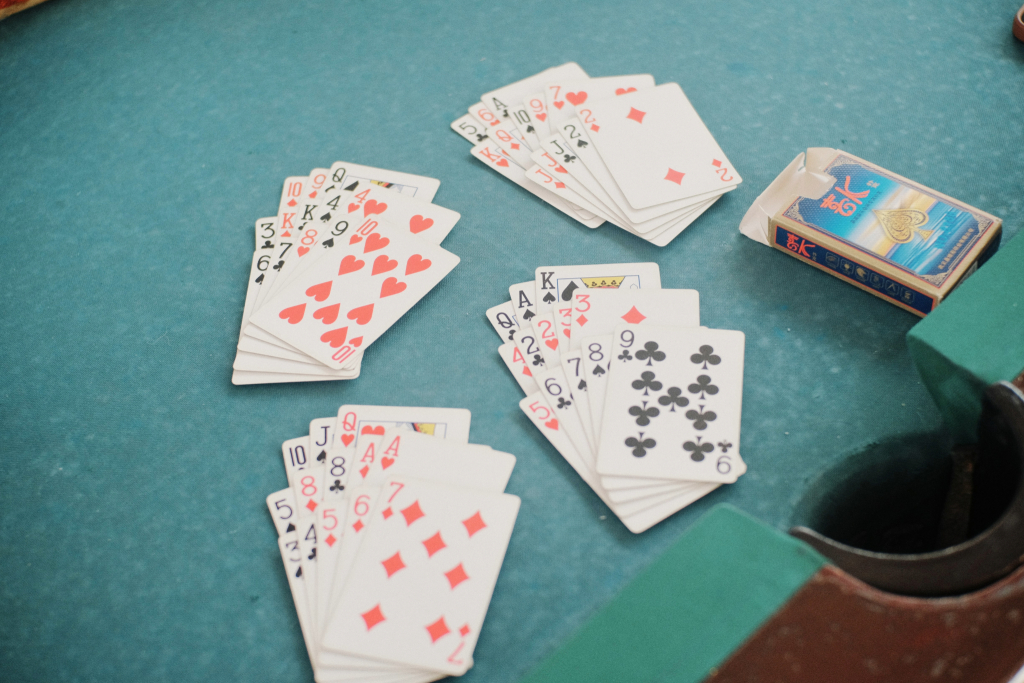UK May Raise Minimum Lottery Age to 18
The British government has announced that it is considering raising the minimum age limit for all National Lottery games from 16 years old to 18 years old in 2020. Sixteen and seventeen-year-olds would no longer be able to buy scratch cards and could be banned from taking part in the bi-weekly Lotto draws as well.

Mims Davies wants to change the age limit for scratch cards.
Mims Davies, Civil Society Minister, has initiated a consultation on increasing the minimum age limit so that it is in line with the generally recognised age of adulthood – 18 years old. She argued that the current minimum age of 16 years old was an exception to most rules and that most other rights and responsibilities came with 18 years old. In her speech to the House of Commons, Davies argued: “There are 450,000 children gambling every week in our country. It is a number that has quadrupled in recent years. For many young people, scratch cards are a gateway to gambling from the age of 16. We don’t think that’s right, particularly when we are struggling with an epidemic of gambling addiction across the country.”
Reactions to the Change
Since Davies believes scratch cards to present the biggest threat to young players, her initial view was to only raise the age limit for these games. She said that she would consult with Camelot, the Lottery operator, and retailers to understand the impact such a change would have on their business before making a final decision.
However, the Labour party – and some Tory backbenchers – urged her to act immediately. Tom Watson, Shadow Culture Secretary, said: “There is absolutely no need for a consultation on this issue. We already have all the evidence we need. To gamble you should be an adult, so the minimum age for all gambling products should be 18 – it’s as simple as that.” Former Tory leader Iain Duncan Smith agreed: “There is no need for a consultation about the age limit. Frankly, I think we should just get on with it. There’s enough evidence out there.”
Davies has said that the consultation will look at a few different options to decide which is the best way forward. Those options include keeping the age limit at 16 years old, raising the minimum age to 18 years old, or increasing the age limit for instant-win scratch cards and online games only. She explained her reasoning for considering these approaches: “My initial view based on the evidence reviewed so far, is that such a split could be the best approach. This takes into account that the risk of harm associated with playing the National Lottery is at the lowest of any form of gambling. But we do know the risk of harm is slightly higher for instant-win games than it is for draw-based games such as Lotto. Therefore, I am keen to seek further evidence in this area and hear what others think, given that the National Lottery matters so much to so many people.”
It is expected that Davies will have legislation on the new age limit prepared in autumn. That should clarify what will happen next and give plenty of time before the bidding process for the next National Lottery licence starts in 2020.
As well as the possible change in the minimum age, Davies’s legislation will also increase the maximum prize draws run by society lotteries for good causes from £400,000 to £500,000. The annual sales limit for these lotteries will also be increased to £50million. Camelot, the Lottery operator, has said that is has no issue with the review of the age limits but that it is “extremely disappointed” with the increase in prize and sales limits for society lotteries. These operate on a national scale and compete with Camelot’s products.
Scratch Cards
According to an article in The Guardian earlier this year, scratch cards are now the UK’s second most popular form of gambling, after the National Lottery draws. A scratch card is a small card where sections can be scratched off to reveal numbers or symbols. Depending on the symbols revealed, the player can win different amounts of cash – or nothing at all.

Scratch cards are the second most popular form of gambling in the UK. ©The Shropshire Star
There are 42 different scratch cards available from the National Lottery, ranging from £1 cards with prizes up to £100,000, to £10 cards which offer prizes up to £3million. Numerous other companies sell their own scratch cards too, including airlines like Ryanair. Online scratch cards are also becoming increasingly popular as people can play without even having to leave their homes.
A study by the UK Gambling Commission in 2018 found that 450,000 people aged 11 to 16 years old gambled in a week. 16% of 11 to 16-year olds said that they bought National Lottery scratch cards at least once a week.
In 2018, sales of National Lottery instant-win games were £2.9billion. On the topic of scratch cards, Camelot has said: “The sales they bring in are over and above those that we get from our typical draw-based games players. So, it’s not relevant to focus solely on the percentages – it’s the additional money going to good causes that’s important.”



